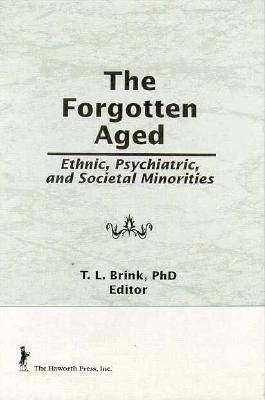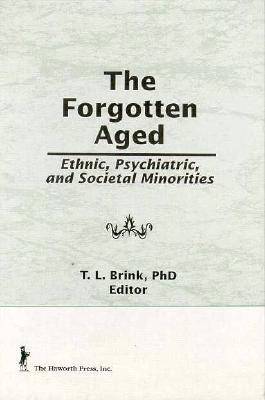
- Retrait gratuit dans votre magasin Club
- 7.000.000 titres dans notre catalogue
- Payer en toute sécurité
- Toujours un magasin près de chez vous
- Retrait gratuit dans votre magasin Club
- 7.000.0000 titres dans notre catalogue
- Payer en toute sécurité
- Toujours un magasin près de chez vous
Description
This helpful book explores mental health issues relating to elders who do not fit into the "usual" mold for research--white, married or widowed, urban or suburban persons with adult children. The Forgotten Aged focuses on those groups of elders often overlooked in gerontological literature--elder African-Americans, rural aged, gay and lesbian aged, parents of developmentally disabled offspring, older developmentally disabled persons themselves, and "orphan" elders (those who do not have close family members who can serve as caretakers). The book offers "how to" advice on issues such as outreach, intervention, residential placement and transition, assessment, psychotherapy, and team building to help readers learn effective ways of helping elderly persons from these various groups. With an optimistic tone, it explores how more attention and resources, combined with flexible modifications of programs and practices, can yield favorable results for everyone involved. In The Forgotten Aged, authors examine a variety of pertinent topics including:
- assessment of dementia and depression in African-Americans
- multidisciplinary team outreach to elderly living in rural areas
- therapeutic issues with gay and lesbian aged
- residential transitions for developmentally disabled elderly
- helping aging parents of developmentally disabled offspring
- intervention with "orphan" elderly with Alzheimer's diseaseSocial workers, psychologists, psychiatrists, geriatricians, nurses, and counselors involved in providing support and care for elderly persons will find The Forgotten Aged a useful guide in their daily work and decisionmaking. This book can also serve as an enlightening supplementary text in courses that study aging and the elderly.
Les avis
Nous publions uniquement les avis qui respectent les conditions requises. Consultez nos conditions pour les avis.







